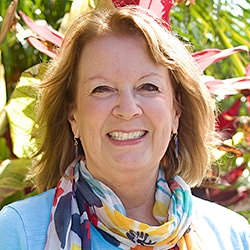

NVC Resources on Money Issues
-
Our world trains us to think in terms of providing for everyone’s needs because they deserve it, earned it, or they possess the resources -- it's fair, socially just, supports equality or because people have rights. Instead, can we step outside this worldview to look at providing for everyone’s needs because those needs exist -- can we hold this basic reverence for life? Are we able to have a needs-based dialogue when such a reframe could alienate those who live in the worldview of earn/deserve?
-
By focusing on NVC process and practice without factoring in the interdependent, systemic dimension we unwittingly diminish the power of NVC. We reinforce the dominant paradigm, rather than challenging it -- making NVC one more tool for compliance. NVC principles can turn against its own purpose in cruel ways. NVC could also empower social change. We'll need our attention on this matter if we are to contribute to transforming the oppression we face and our collective march towards extinction.
-
We can't alone (nor with lone communities) transform the hidden structures of violence and domination. Dialogue alone isn't disruptive enough. We can easily be in dialogue with Trump supporters while the planet burns up, millions are still hungry, and we go extinct. NVC seriously risks reinforcing vast inequities and abuses if we're not radically engaging systemic constraints, and impacts of our choices that go beyond our immediate circle. Read on for ways to leverage NVC practices to expand true social change.
-
Even in the pandemic the line between what’s essential for people and what is “essential” for fueling the economy, often gets confused. Capitalist market economies actively undermine attending to needs for the many and for life as a whole. Economic recovery is a mirage leading to continued collective oppression. This article explores possible ways to bring us closer to attending to our actual needs — and caring for self, others and life.
-
The pandemic has unsettled deep patterns of consumption. There’s a fear, and with it comes the mindset that is the heart of rampant consumption; habits which are essential to the market economy’s “economic recovery”. High consumption is also the most direct cause of environmental degradation. What do we need in order to significantly reduce consumption for our greater resilience and freedom, and to increase our planetary and human sustainability?
-
Trainer Tip: Research shows long-term change comes when people have intrinsic desire to change. Extrinsic motivation is temporary and often only lasts while we're observed (eg. driving the speed limit when police are there). Notice where you're mostly intrinsically or extrinsically motivated. How does this feel? For instance, do you call mom because you want to connect with her? Or because you’re worried she’ll be hurt if you don’t?
-
What is it that we are taught we can’t have, and what is it that we are encouraged to pursue instead? This guide could help you see through what's hidden behind the curtain of our societal conditioning.
-
If you're stuck when making a decision with someone, it's likely that you've skipped hearing and connecting to one another's needs. Slow down and listen for what's really important underneath the content. This allows you to make decisions that are more fulfilling and harmonious.
-
Within the pandemic, limitations of our market economies are more visible. Extreme need is exposed when the economy is collapsing and so many people are without jobs. We can now see how it’s possible to direct resources where they are most needed, solely out of care and interconnection. This is a call to explore a more viable way of living, that centers relationship over transaction.
-
When we have few external resources (money, time, health connections, etc), we can still empower ourselves and one another. We can strengthen our internal resources, inspire people to join our cause, build solidarity, and influence others who have external resources to support us and our causes.

Quick Links
Subscription Preferences
Stay In Touch!
Looking for ways to keep up with NVC Academy news, get special offers, free resources, or words of inspiration? Here are five ways to stay engaged:





